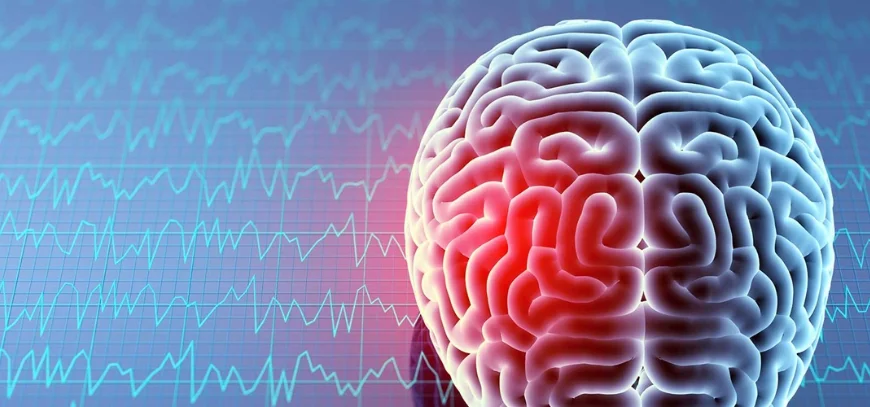
Best Neurologist in Karimnagar
Dr. P Rajesh, a highly skilled brain and spine surgeon (neurosurgeon)in Karimnagar. With his expertise and knowledge, he will create a personalized treatment plan just for you.
Dr. P Rajesh ensures to listen carefully to your concerns and respects your decisions throughout your treatment. He uses the latest techniques and tools to help your brain and spine function better.
Ready to feel better? Schedule an appointment with Dr. P Rajesh today!
Book AppointmentOur Services


Neurosurgical Spine Procedures
Our neurosurgical spine procedures encompass a range of advanced techniques aimed at addressing spinal conditions and restoring function. From minimally invasive approaches to complex spinal surgeries, our team is dedicated to providing personalized care tailored to each patient's needs.
- Comprehensive evaluation and treatment of spinal conditions
- Utilization of minimally invasive techniques when appropriate
- Focus on restoring spinal function and improving quality of life


Minimally Invasive Spine Surgery
Our minimally invasive spine surgery techniques offer patients the benefits of smaller incisions, reduced trauma to surrounding tissues, and faster recovery times. We strive to minimize discomfort and expedite the return to normal activities for our patients.
- Precision surgical techniques with minimal tissue disruption
- Enhanced patient comfort and quicker recovery
- Customized treatment plans to address specific spinal issues


Spinal Fusion Surgery
Spinal fusion surgery is performed to stabilize the spine and alleviate pain caused by conditions such as spinal instability or degenerative disc disease. Our team specializes in various fusion techniques, including anterior cervical discectomy and fusion (ACDF), posterior lumbar interbody fusion (PLIF), and transforaminal lumbar interbody fusion (TLIF).
- Expertise in fusion procedures to restore spinal stability
- Customized surgical approach based on individual patient needs
- Emphasis on reducing pain and improving spinal function


Microdiscectomy & Laminectomy
Microdiscectomy and laminectomy are surgical procedures used to treat herniated discs and spinal stenosis, respectively. Our neurosurgeons employ these techniques to alleviate pressure on nerves and relieve associated symptoms.
- Precise removal of herniated disc material or spinal bone to decompress nerves
- Minimization of tissue trauma and preservation of spinal stability
- Focus on restoring nerve function and reducing pain

.webp)
Anterior Cervical Discectomy and Fusion (ACDF)
ACDF is a surgical procedure used to treat conditions affecting the cervical spine, such as herniated discs or degenerative disc disease. Our skilled surgeons perform ACDF to remove damaged discs and stabilize the spine using bone grafts and implants.
- Restoration of cervical spine alignment and stability
- Reduction of pressure on spinal nerves to relieve pain and symptoms
- Emphasis on optimizing long-term spinal function and mobility

.webp)
Posterior Lumbar Interbody Fusion (PLIF)
We provide comprehensive care for hypertension, focusing on lifestyle modifications, medication management, and ongoing monitoring to help patients achieve and maintain healthy blood pressure levels.
- Holistic approach to hypertension management
- Personalized care plans for long-term blood pressure control

.webp)
Transforaminal Lumbar Interbody Fusion (TLIF)
Our team specializes in managing high cholesterol levels through personalized treatment plans that include dietary modifications, exercise regimens, and medication therapy aimed at reducing cardiovascular risk.
- Comprehensive management plans for high cholesterol
- Emphasis on reducing cardiovascular risk through lifestyle modifications


Endoscopic Spine Surgery
Endoscopic spine surgery offers minimally invasive alternatives for treating spinal conditions such as herniated discs or spinal stenosis. Our neurosurgeons utilize advanced endoscopic techniques to access and address spinal pathology with precision and minimal tissue disruption.
- Small incisions and specialized instruments for targeted spinal treatment
- Reduced postoperative pain and faster recovery compared to traditional open surgery
- Individualized approach to address each patient's unique spinal issues


Artificial Disc Replacement
Artificial disc replacement is a surgical procedure used to treat degenerative disc disease by replacing a damaged disc with a prosthetic implant. Our neurosurgeons offer this advanced treatment option to restore spinal motion and alleviate pain while preserving spinal function.
- Preservation of spinal motion and flexibility with artificial disc replacement
- Reduction of pain and improvement in quality of life for patients with degenerative disc disease
- Customized treatment plans based on patient anatomy and spinal condition


Kyphoplasty & Vertebroplasty
Kyphoplasty and vertebroplasty are minimally invasive procedures used to treat vertebral compression fractures caused by osteoporosis or trauma. Our neurosurgical team performs these interventions to stabilize fractured vertebrae and relieve pain, promoting early mobilization and functional recovery.
- Stabilization of vertebral fractures to reduce pain and improve mobility
- Injection of bone cement to reinforce weakened vertebrae and restore vertebral height
- Rapid relief of symptoms and restoration of spinal function with minimal downtime


Spinal Cord Stimulation
Spinal cord stimulation is a therapeutic approach used to manage chronic pain conditions affecting the spine, such as failed back surgery syndrome or neuropathic pain. Our neurosurgeons implant small devices that deliver electrical pulses to the spinal cord, disrupting pain signals and providing relief to patients.
- Reduction of chronic pain and improvement in quality of life with spinal cord stimulation
- Customized programming to optimize pain relief and patient comfort
- Collaboration with pain management specialists to develop comprehensive treatment plans


Percutaneous Spine Surgery
Percutaneous spine surgery involves minimally invasive techniques to treat spinal conditions such as herniated discs or spinal fractures. Our neurosurgeons utilize specialized tools and imaging guidance to perform precise interventions through small incisions, resulting in quicker recovery and reduced postoperative discomfort.
- Minimally invasive approach with small incisions and reduced tissue trauma
- Targeted treatment of spinal pathology using advanced surgical techniques
- Expedited recovery and return to normal activities compared to traditional open surgery


Revision Spine Surgery
Revision spine surgery may be necessary to address recurrent or persistent symptoms following a previous spinal procedure. Our experienced neurosurgeons carefully evaluate each case to identify the underlying issues and determine the most appropriate surgical approach to achieve optimal outcomes.
- Assessment of previous surgical outcomes and identification of residual spinal pathology
- Customized treatment plans to address recurrent symptoms and complications
- Emphasis on restoring spinal function and improving patient satisfaction


Traumatic Brain Injury
Traumatic brain injury (TBI) requires prompt evaluation and management to prevent further damage and optimize recovery. Our neurosurgical team specializes in the treatment of TBIs, offering comprehensive care tailored to each patient's specific injury severity and neurological status.
- Rapid assessment and stabilization of patients with traumatic brain injuries
- Multidisciplinary approach to address associated neurological and medical issues
- Rehabilitation strategies to promote functional recovery and improve long-term outcomes


Brain Tumor Surgery
Brain tumor surgery aims to remove abnormal growths within the brain while preserving neurological function. Our neurosurgeons utilize advanced surgical techniques and imaging technologies to precisely target and resect brain tumors, minimizing damage to surrounding healthy tissue.
- Individualized treatment plans based on tumor type, location, and patient factors
- Maximization of tumor removal while preserving neurological function
- Collaboration with oncologists and radiation specialists to optimize overall tumor management
Patient Information

FAQ
Common symptoms of neurological issues include persistent headaches, numbness or weakness in limbs, difficulty speaking or understanding speech, seizures, sudden changes in vision, and loss of balance or coordination. If you experience any of these symptoms, especially if they are severe or sudden, it's important to seek urgent medical attention.
Diagnosis of a brain tumor typically involves imaging tests such as MRI or CT scans, and sometimes a biopsy to examine a sample of the tumor tissue. Treatment options depend on factors such as the type and location of the tumor, but may include surgery, radiation therapy, chemotherapy, or a combination of these approaches.
Risks associated with spinal surgery can include infection, bleeding, nerve damage, and complications related to anesthesia. To manage these risks, thorough preoperative assessments are conducted, and precautions are taken during surgery to minimize complications. Postoperative care and rehabilitation are also essential for optimizing recovery and reducing the risk of complications.
Neurosurgery can help relieve chronic back pain or sciatica by addressing underlying issues such as herniated discs, spinal stenosis, or nerve compression. Surgical procedures like discectomy, laminectomy, or spinal fusion may be recommended to alleviate pressure on nerves and restore function.
Warning signs of a stroke include sudden weakness or numbness on one side of the body, difficulty speaking or understanding speech, confusion, trouble seeing in one or both eyes, severe headache, and dizziness or loss of balance. If you or someone else experiences these symptoms, it's crucial to seek immediate medical attention as stroke treatment is time-sensitive.

